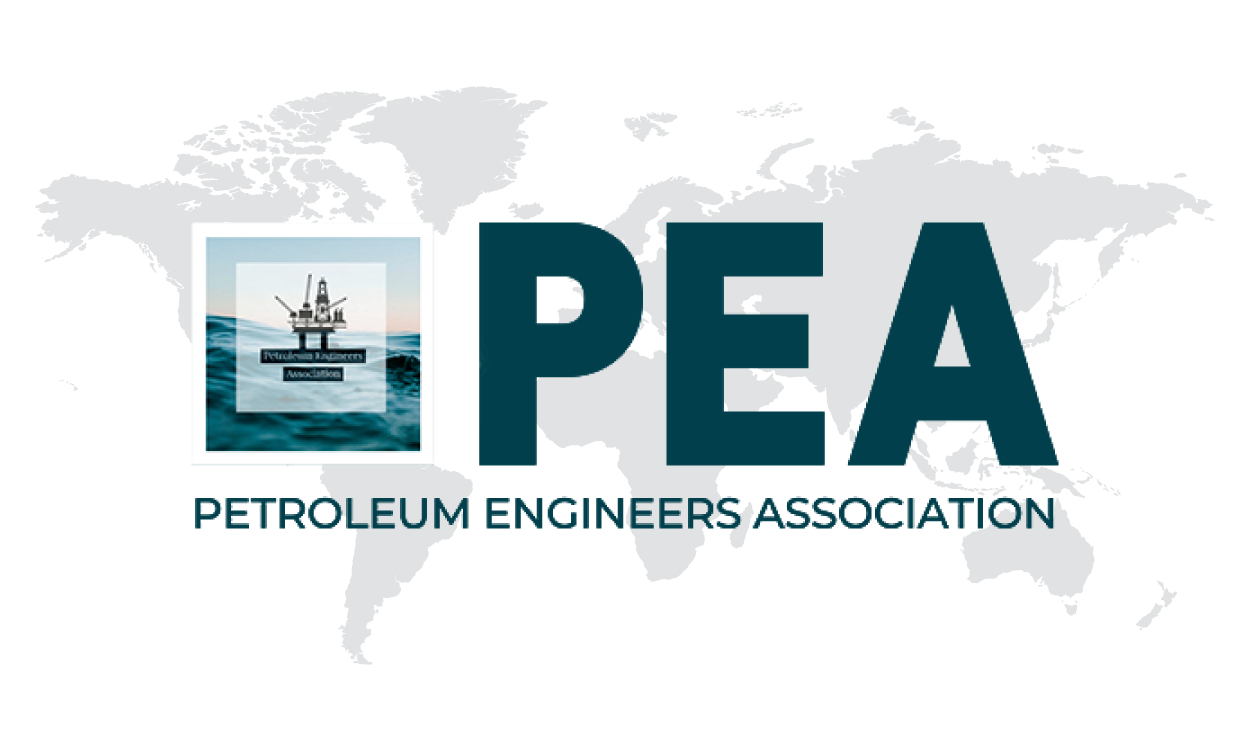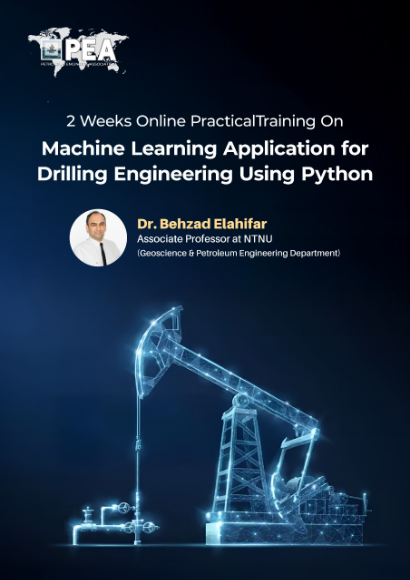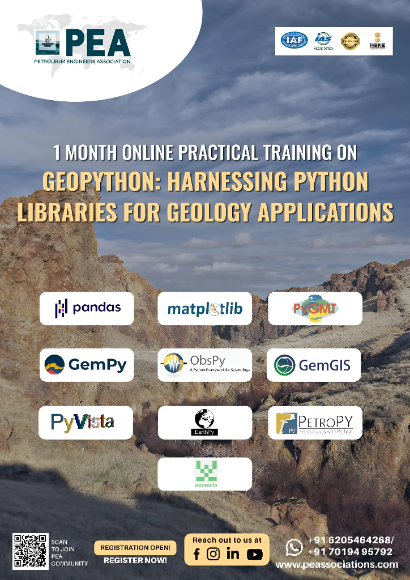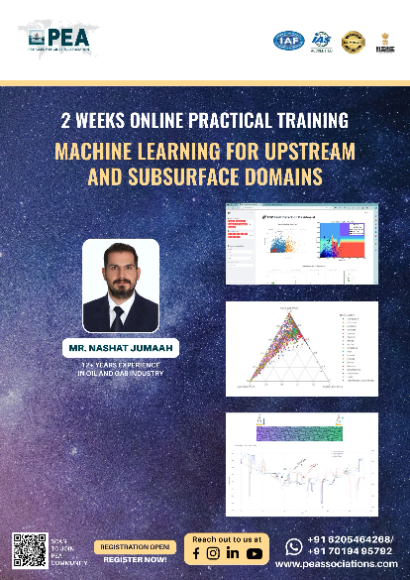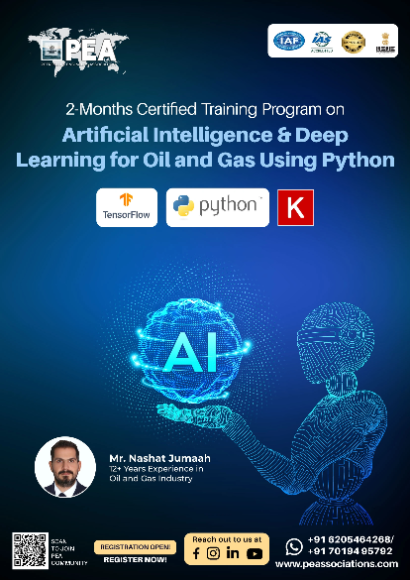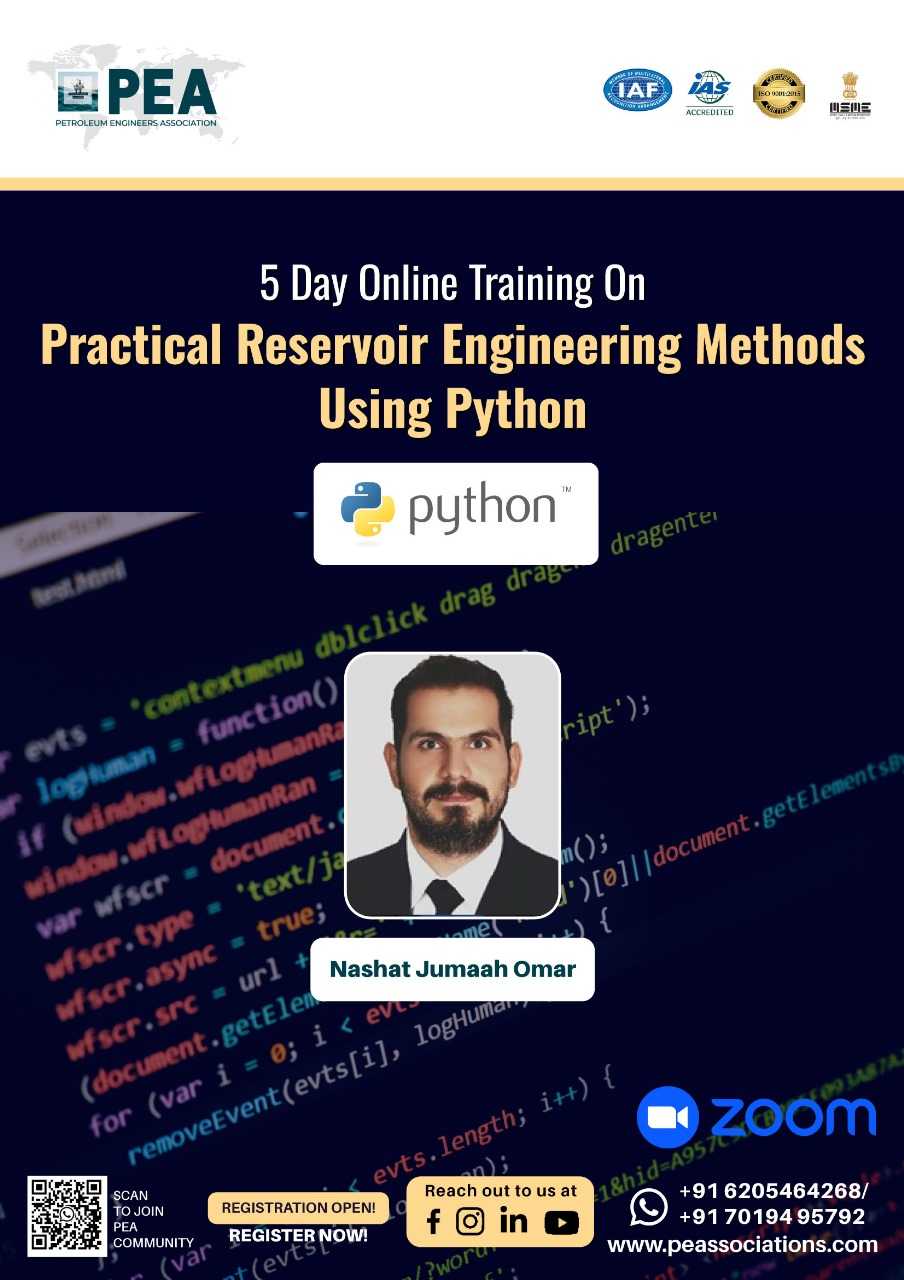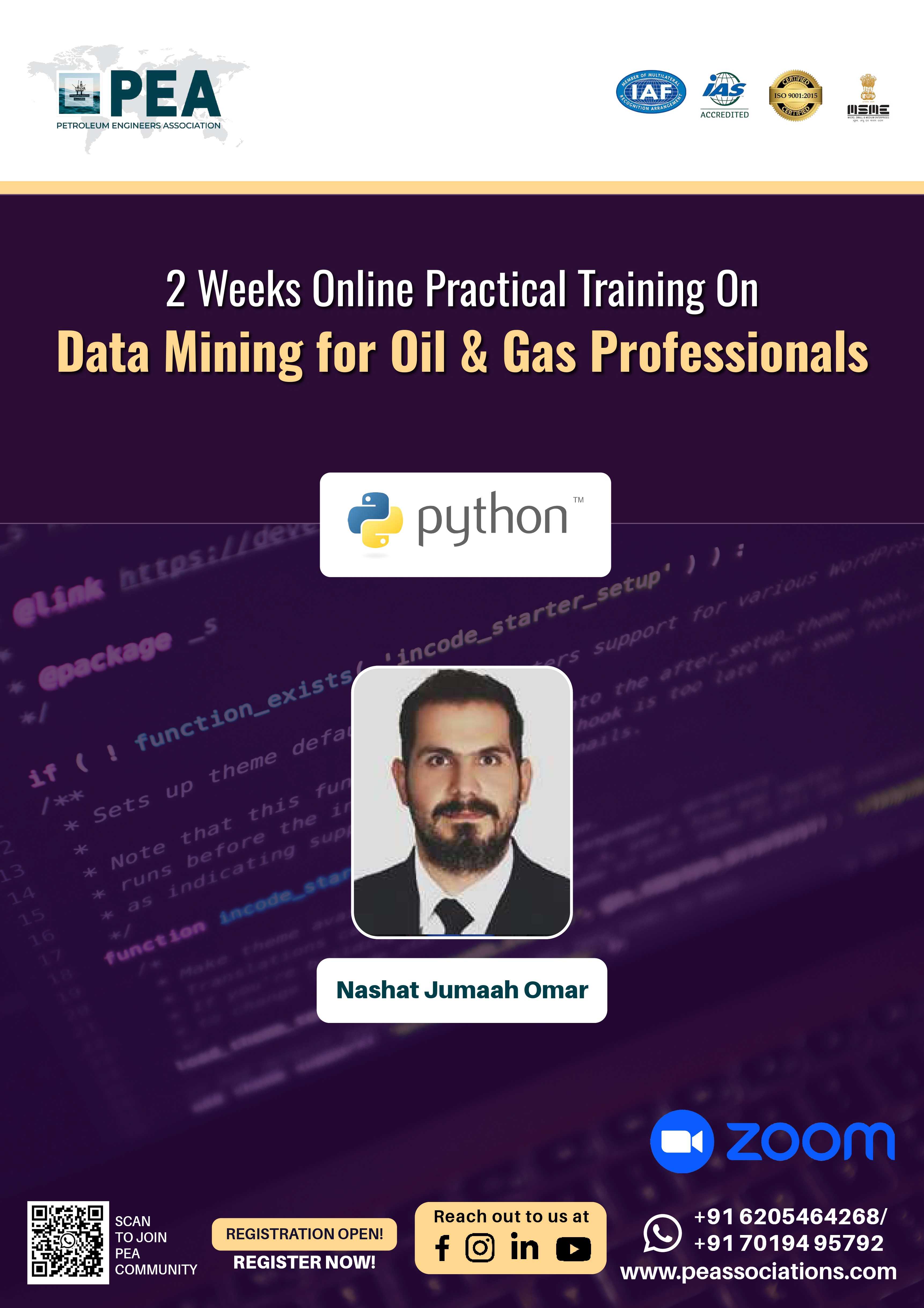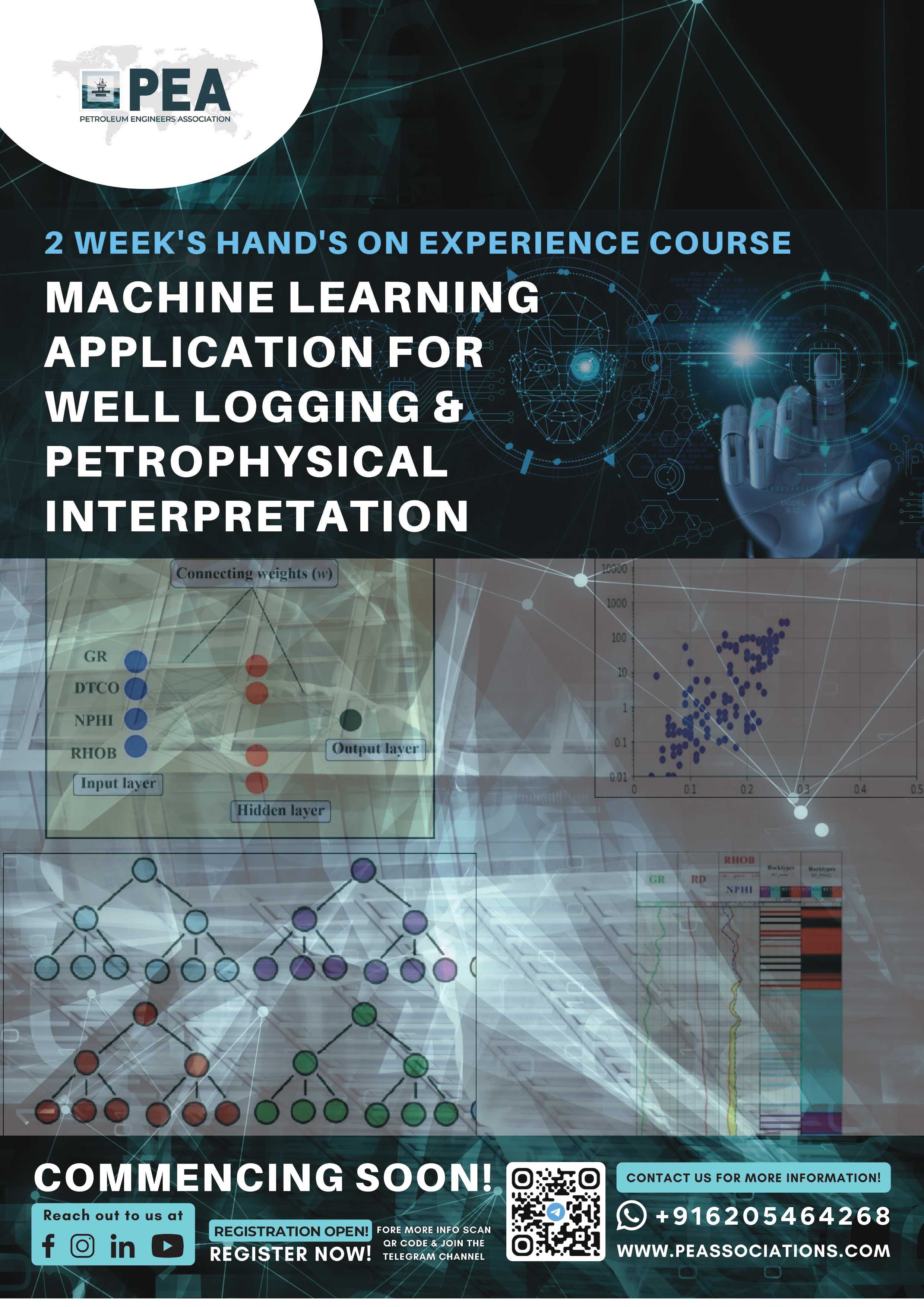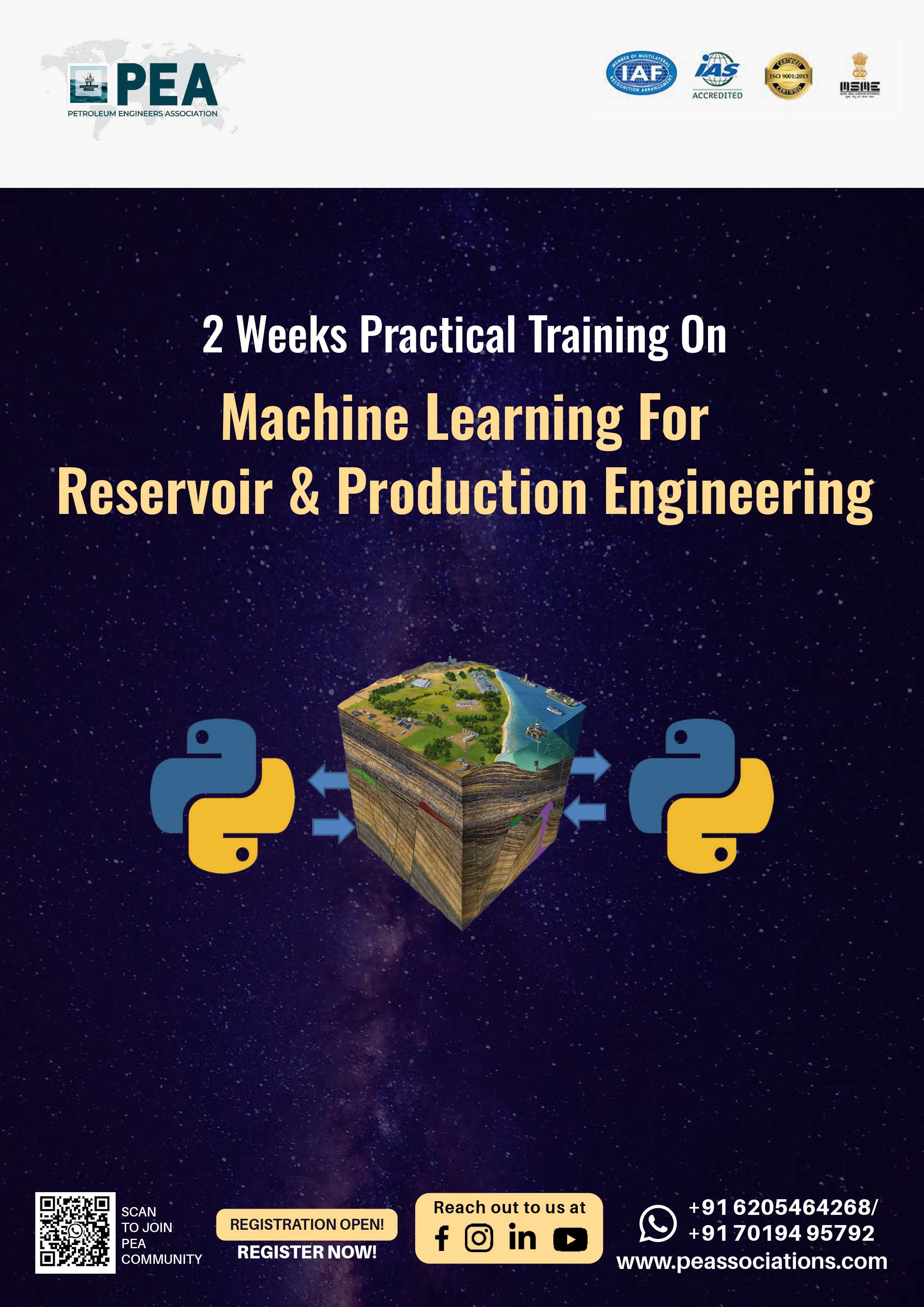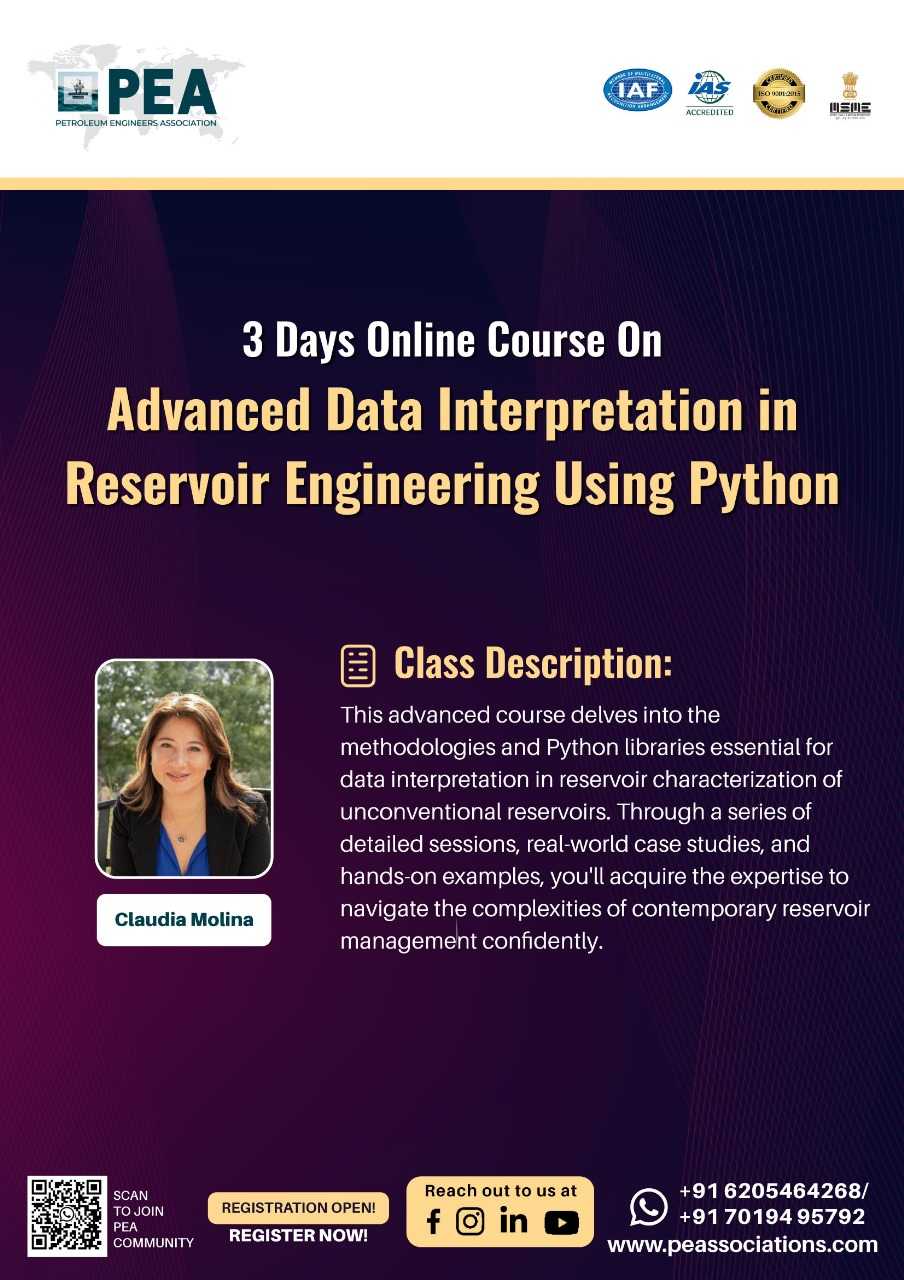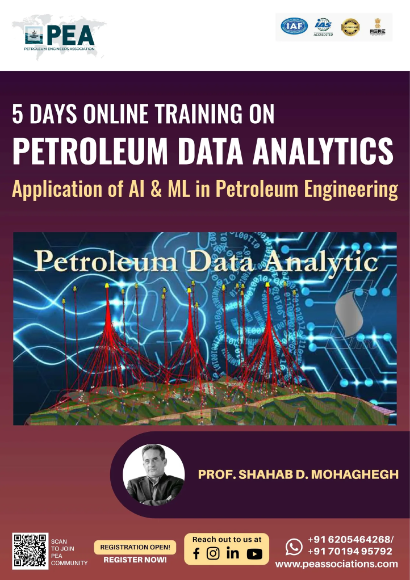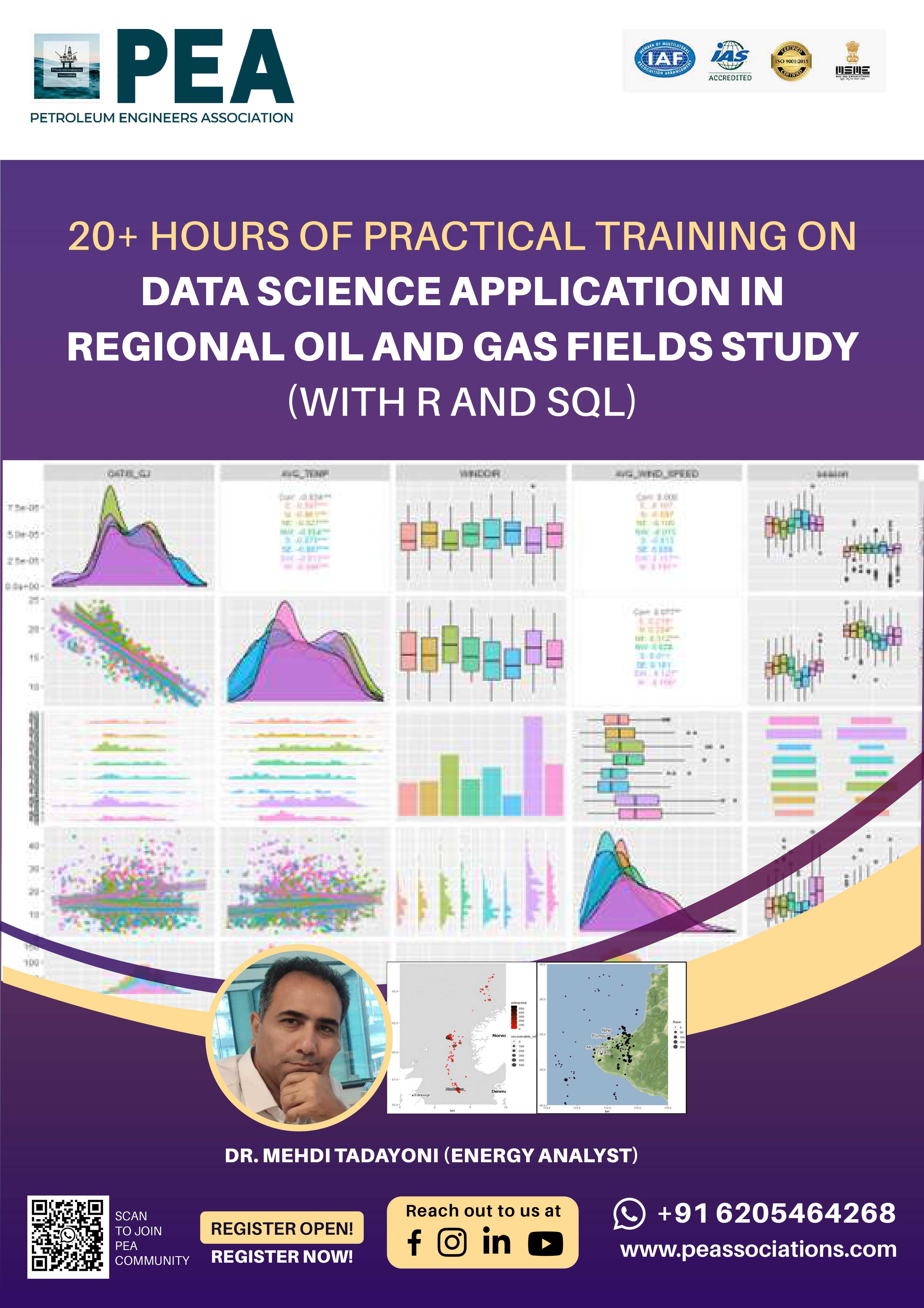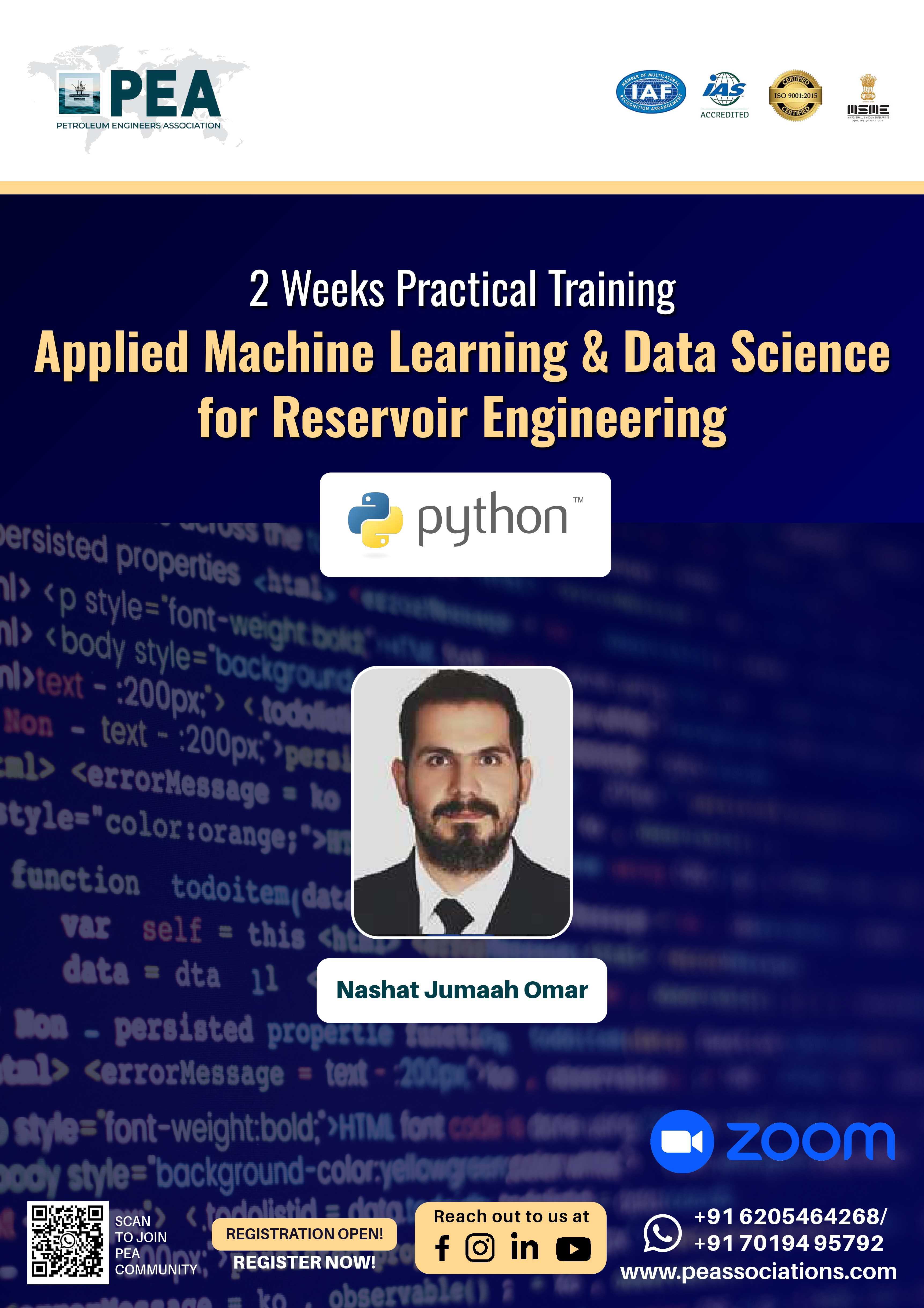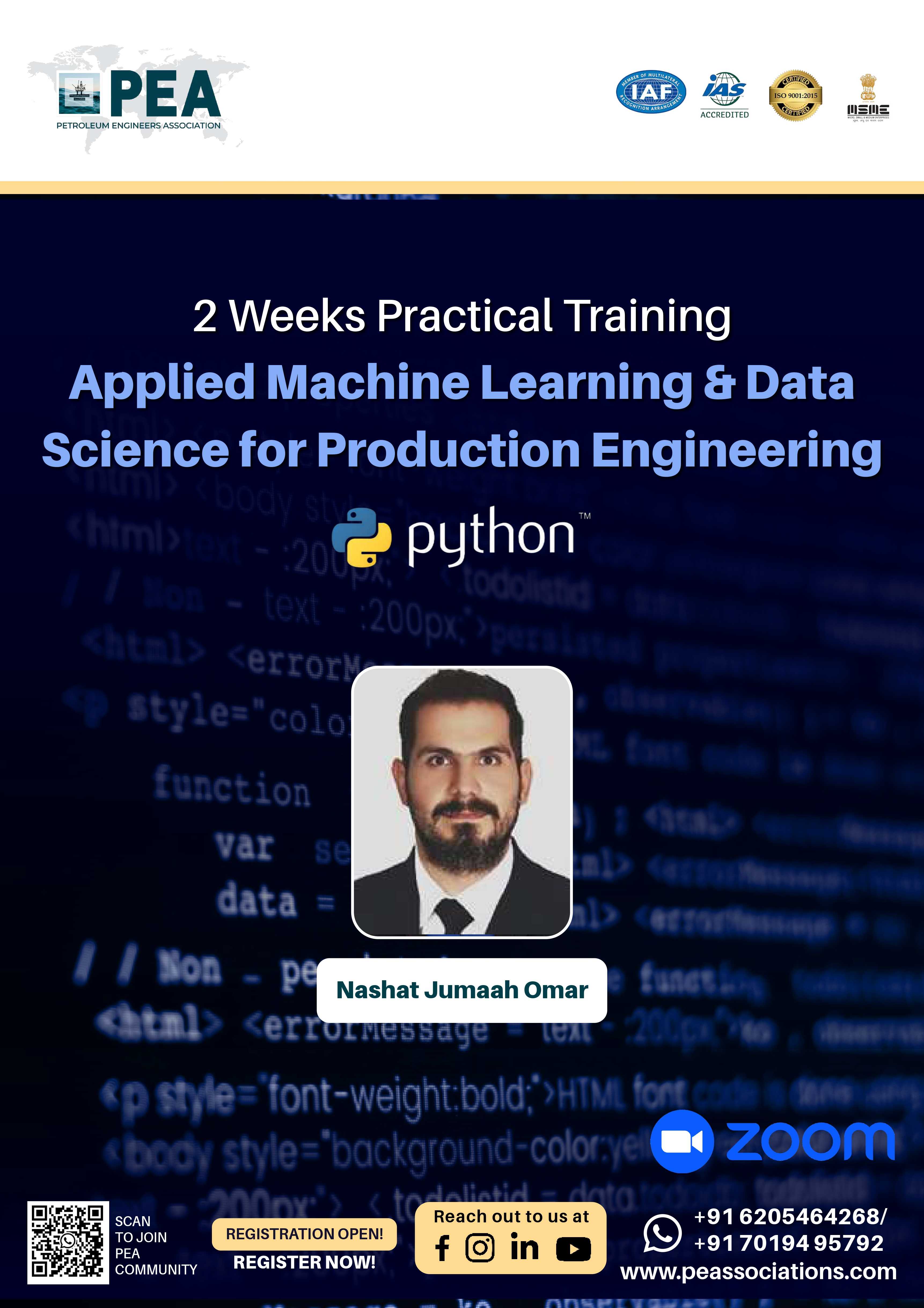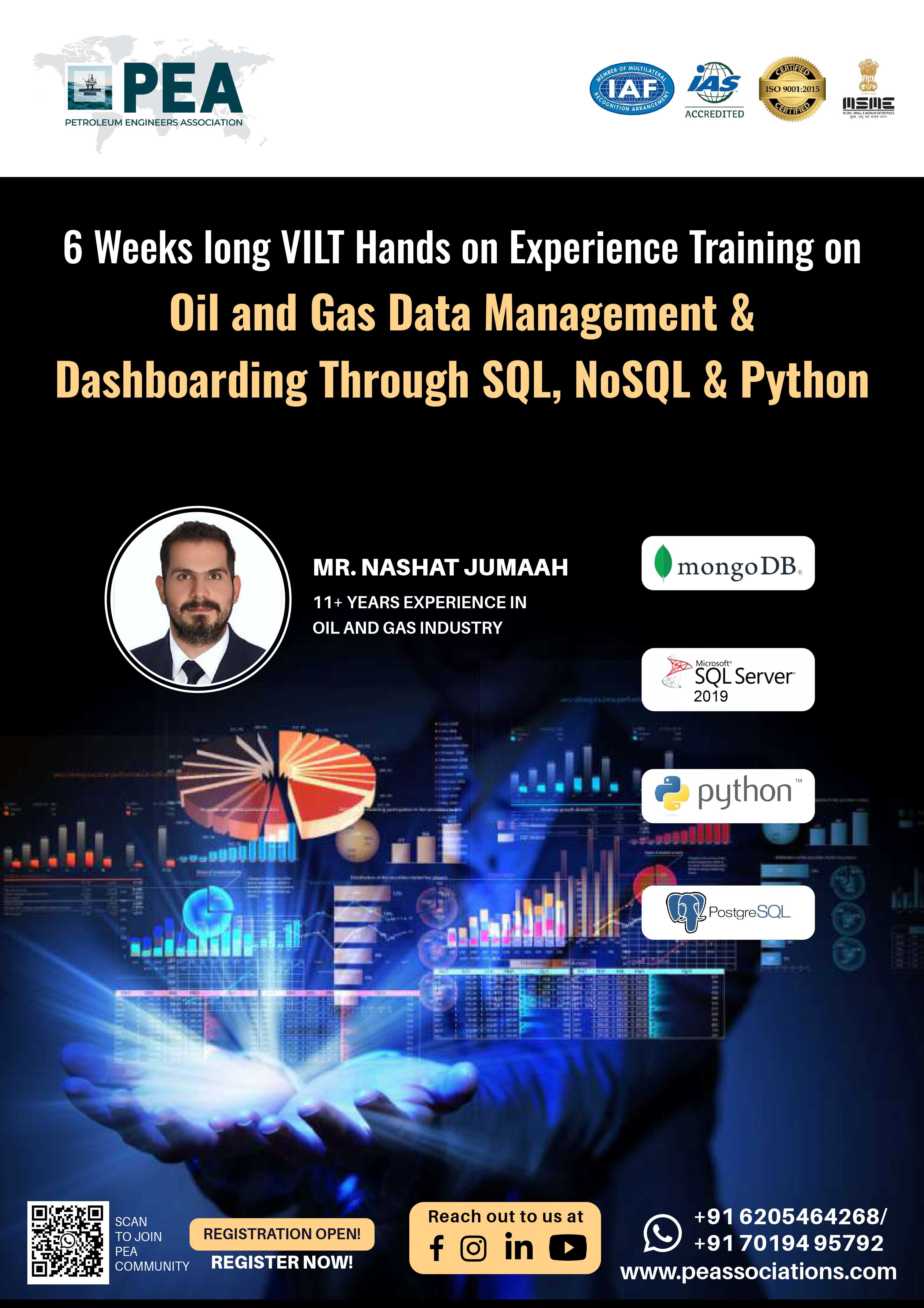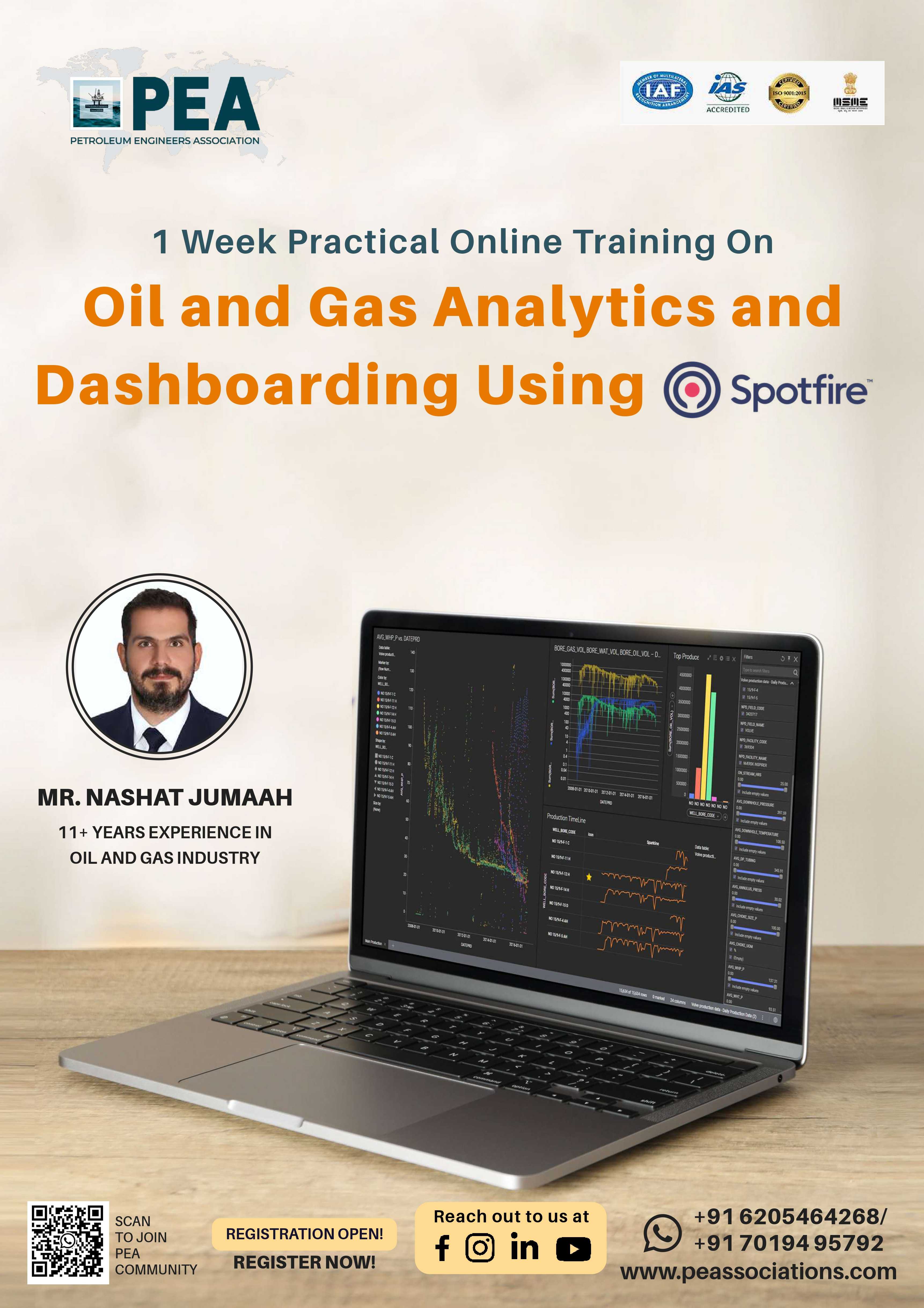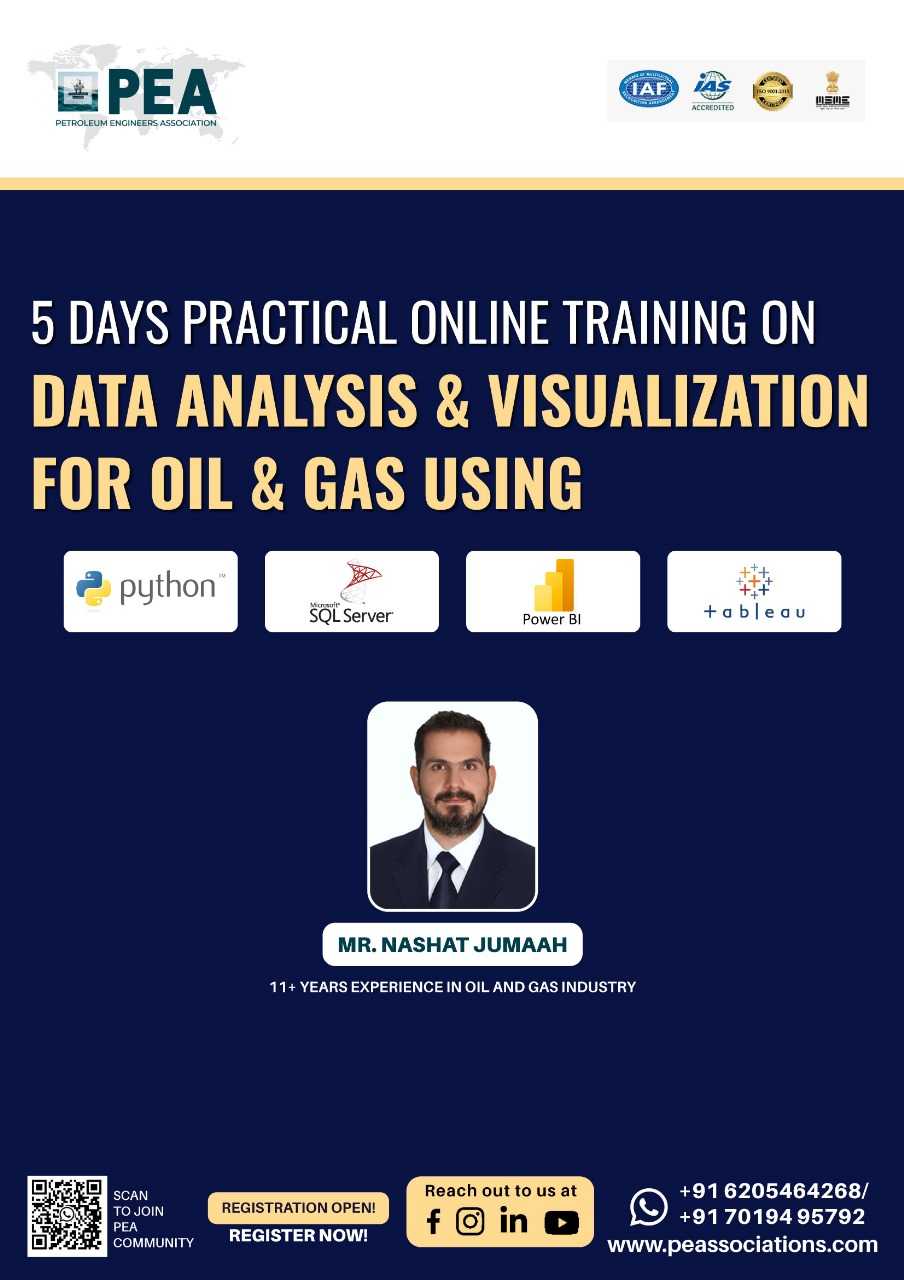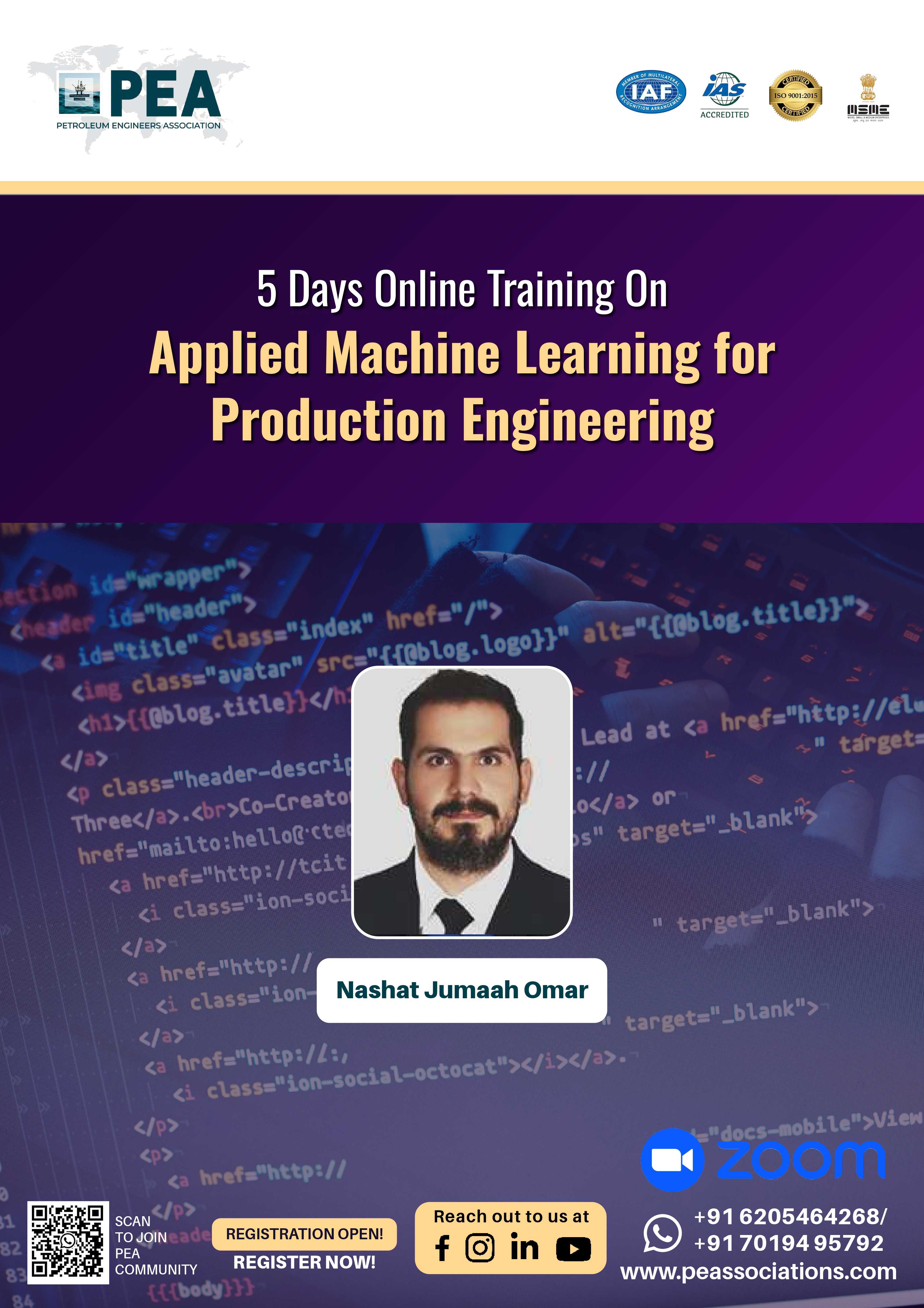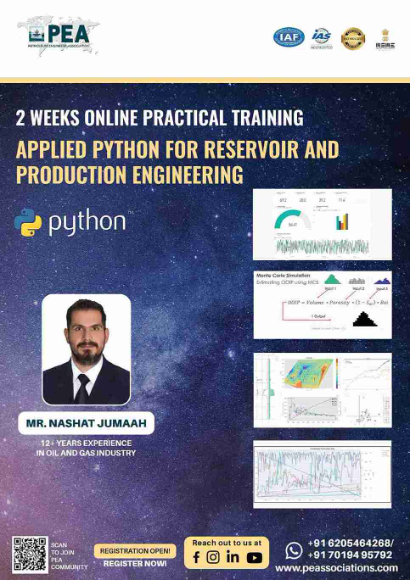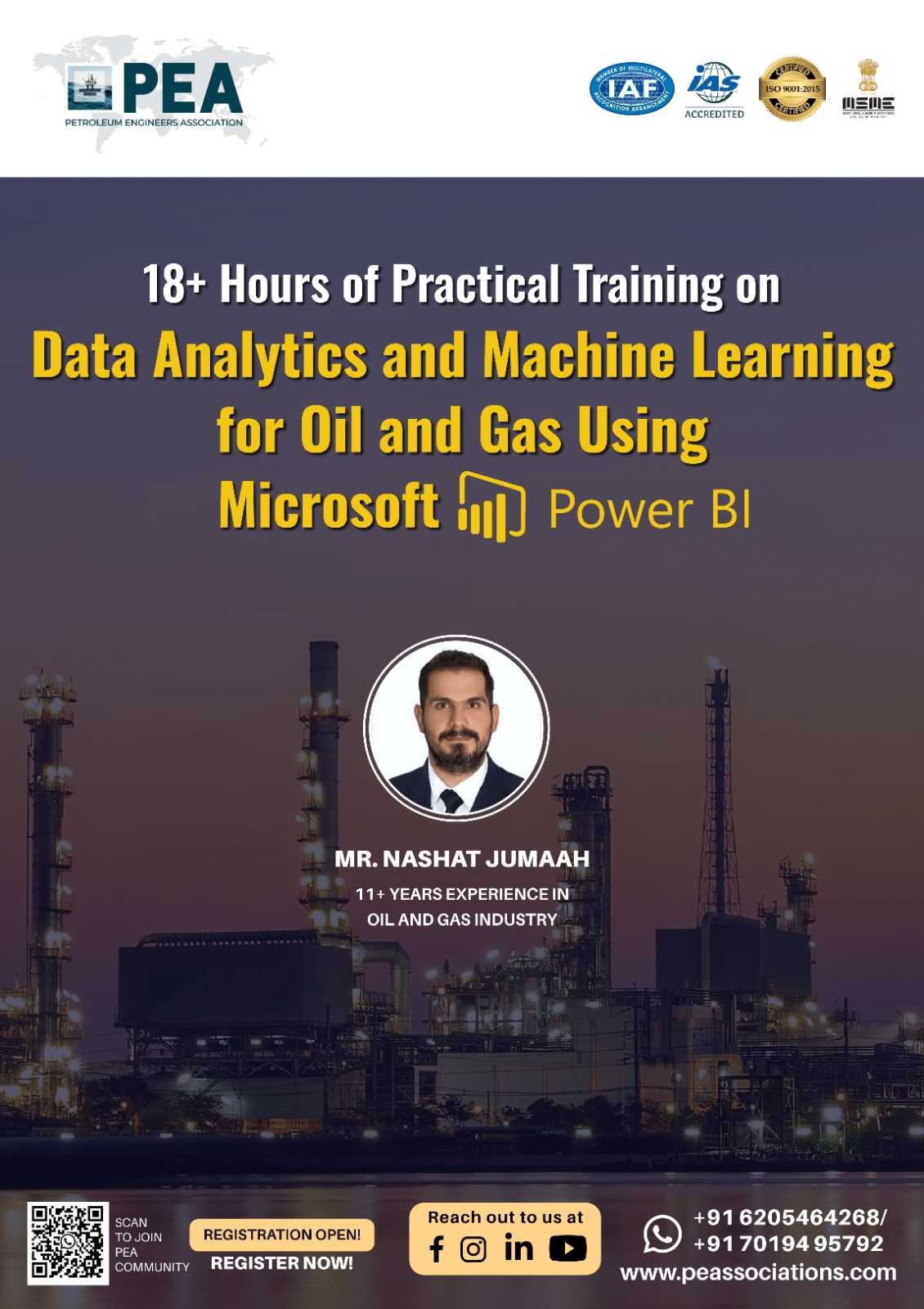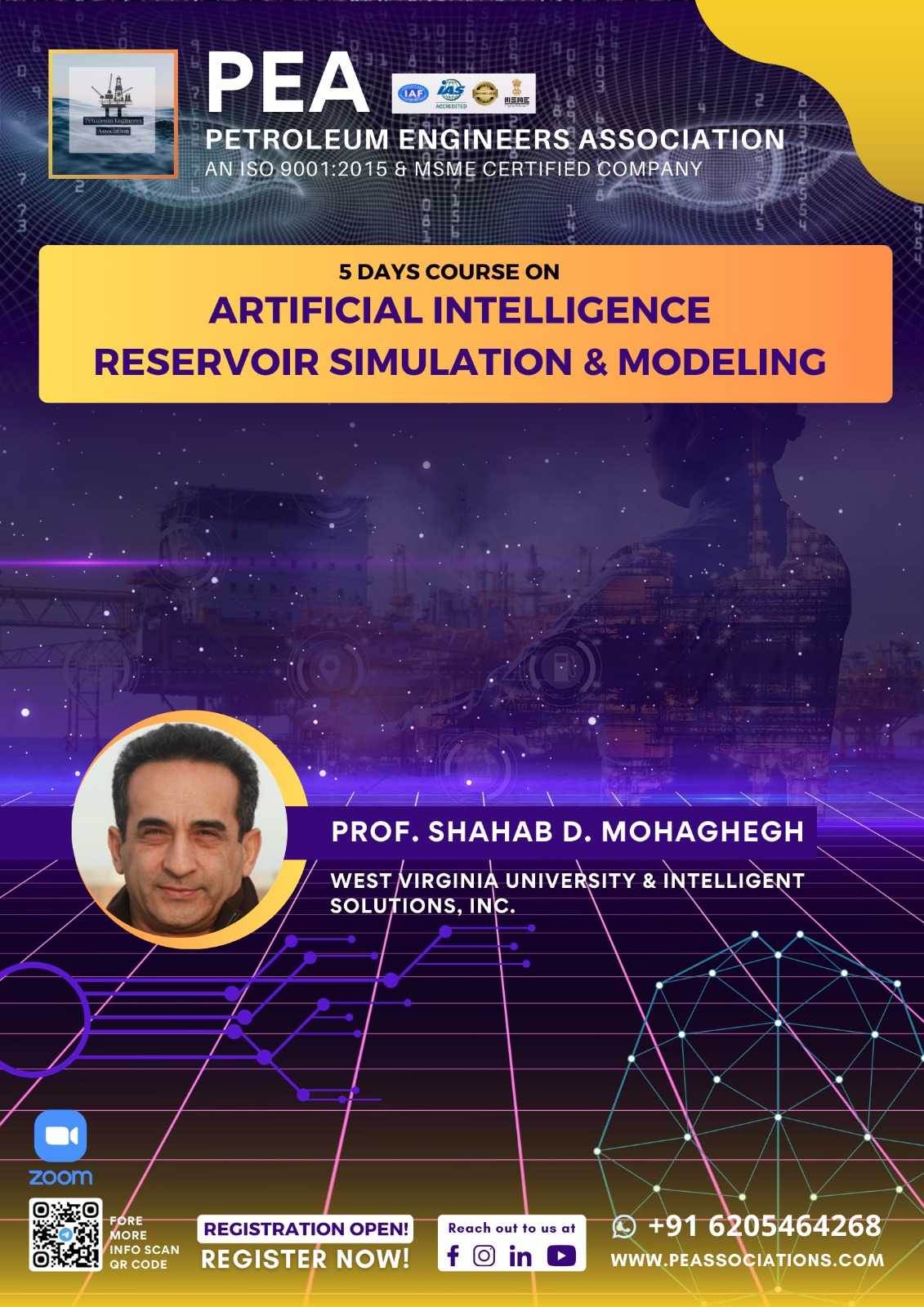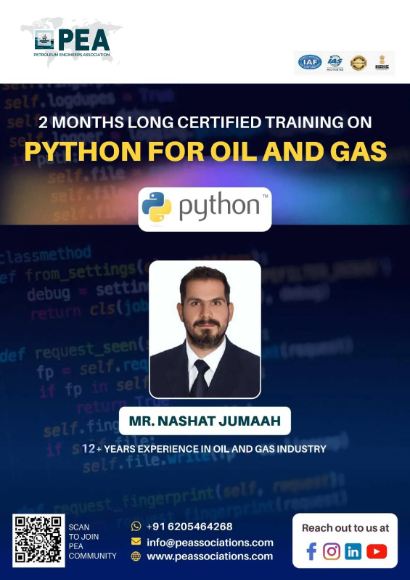Machine Learning Application for Drilling Engineering Using Python
Have Questions ?
Machine Learning Application for Drilling Engineering Using Python - DP26PEA
| Code | Date | Time | Duration | Location | Currency | Team of 10 Per Person | Team of 7 Per Person | Early Bird Fee Per Person | Normal Fee Per Person |
|---|---|---|---|---|---|---|---|---|---|
| DP26PEA | 17 - 28 Aug 2026 | 9 PM Indian Time |
3 Hours Per Day
|
Zoom Online
|
USD
|
1700
|
1850
|
2500
|
3000
|
The Classes Will be Online Via Zoom for 2 Weeks from Mon to Friday starting 9 PM Indian Time for 3 hours each session.
Boost your team's skills and your budget! Enjoy group discounts for collaborative learning. Send an inquiry to info@peassociations.com.
Machine Learning Application for Drilling Engineering Using Python
This hands-on course empowers drilling professionals to apply Python-based machine learning techniques for enhancing drilling operations, decision-making, and well performance. From real-time data analysis to predictive modeling, learn how to unlock the power of ML in modern drilling engineering.
Description
As drilling operations generate massive volumes of real-time data, machine learning has become essential in extracting insights and driving smarter decisions. This course offers a focused and practical introduction to using Python for implementing ML solutions specific to drilling engineering challenges. Participants will learn how to build models for predicting drilling dysfunctions, optimize ROP, identify anomalies, and enhance drilling efficiency using actual industry datasets.
Demo Class
Digitalization in oil and gas has opened up new frontiers for drilling engineering. Machine learning enables engineers to move from reactive to predictive decision-making, improving safety, efficiency, and well economics. This training provides a step-by-step learning path to apply ML techniques using Python from data preparation and feature engineering to model development and deployment all within a drilling context.
No prior coding experience is necessary we start from the basics and guide participants through practical examples, tailored for oil and gas professionals.
Upon completion of this course, participants will be able to:
Understand the fundamentals of digitalization in drilling engineering.
Apply data analytics techniques to optimize drilling performance.
Utilize Python programming for automating tasks and analyzing drilling data.
Evaluate and select appropriate downhole communication systems.
Implement digital solutions to enhance drilling safety and efficiency.
This training employs a blended learning approach, combining interactive lectures, hands-on exercises, case studies, and real-world simulations. Our Experienced instructor will guide you through the theoretical concepts and practical applications of digitalization, downhole communication, and Python programming in drilling engineering.
By adopting the principles and techniques taught in this training, organizations can expect to:
Improve drilling efficiency and reduce non-productive time.
Optimize drilling performance and reduce operational costs.
Enhance decision-making through data-driven insights.
Improve safety and reduce environmental impact.
Gain a competitive advantage in the evolving energy landscape.
You will gain valuable skills and knowledge that can enhance your career prospects and professional development. You will be equipped to:
Lead digital transformation initiatives in drilling operations.
Solve complex drilling challenges using data analytics and Python programming.
Contribute to a safer and more efficient work environment.
Increase your earning potential and career opportunities.
This course is designed for:
Drilling engineers
Petroleum engineers
Operations managers
Drilling superintendents
Professionals involved in drilling operations who wish to enhance their digital skills
Week 1
Drilling (raw) data measurement & collection
Data transmission and downhole measurement
Basic coding with Python (basics)
Applying Python coding for different drilling calculations -NumPy Library
Different drilling sequences and algorithms for coding - Pandas Library (Well Hydraulics, MPD, CML, Drilling Problems, Well Control, Trajectory Design, etc.)
Week 2
Applying Python coding for different drilling data usage - Matplotlib Library
Apply Python coding for different drilling sequences and automation - Seaborn Library & Scikit-Learn Library
Different Machine Learning techniques and methods (Linear Regression, Random Forest, Decision Trees, Gradient Boosting, etc.)
Apply ML techniques to drilling and geoscience engineering projects (ROP prediction, Formation Prediction, etc.)
On successful completion of this training course, PEA Certificate will be awarded to the delegates
Dr. Behzad Elahifar Associate Professor at NTNU (Geoscience and Petroleum Engineering Department)
Education
- Ph.D. in Drilling Engineering, University of Leoben, Austria, 2013
- MEng in Petroleum Well Engineering, Curtin University of Technology, Australia, 2006
- BSc in Drilling Engineering, Petroleum University of Technology, Iran, 2004
Working Experience
- 2019 - Present: Associate Professor, Geoscience and Petroleum Eng Department (NTNU)
- 2019: Project Manager, NOV (National Oil Well Varco) Company
- 2014 - 2019: Project Manager/Drilling Engineer (MPD), Enhanced Drilling Company
- 2013 - 2014: Drilling Engineer, Advanced Drilling Solutions Company (TDE)
- 2009 - 2013: Drilling Instructor/Researcher, University of Leoben
- 2006 - 2009: Drilling Supervisor, NIOC (National Iranian Oil Company
- 2006: Night Drilling Supervisor, PPZ (Pars Petro Zagros)
Frequently Asked Questions
All course bookings made through PEA are strictly non-refundable. By registering for a course, you acknowledge and accept that all fees are payable in full and are not subject to refund under any circumstances, including changes in personal or professional commitments or partial attendance.
PEA reserves the right to make reasonable adjustments to course content, trainers, or schedules where necessary, without entitling delegates to a refund. Comprehensive details of each course — including objectives, target audience, and content — are clearly outlined before enrolment, and it is the responsibility of the delegate to ensure the course's suitability prior to booking.
For any inquiries related to cancellations or bookings, please contact our support team, who will be happy to assist you.
